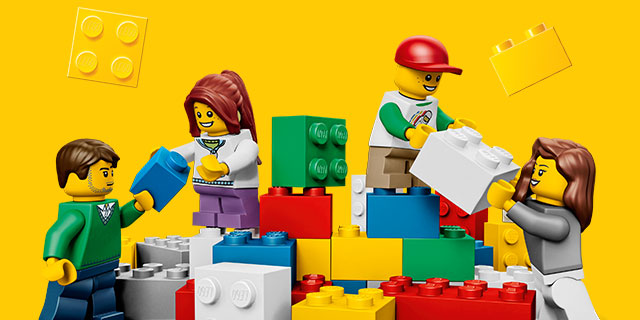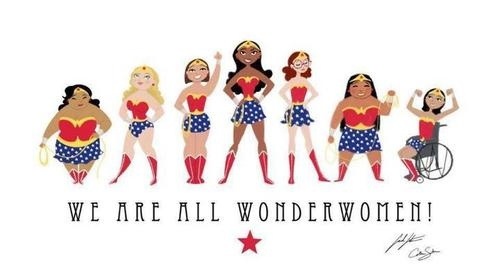“It was a simpler time, when games were primarily marketed to children, and they were easy enough that your sister could jump in for a few hours and not be intimidated”
Why do I love Bejeweled 3?
More interestingly, why is my first reaction to keep my love of Bejeweled 3 secret? Why, when people pick up my iphone, do I wince at the thought that they may see games such as ‘Cooking Mama’ and ‘Diner Dash?’ I started writing this blog to talk about the game mechanics of Bejeweled 3, to show why it’s such a solid game, why it belongs among the ranks of RPGs and FPSs and why it should not be dismissed as simply a puzzle game.
But then I started thinking about the hierarchy of games I have constructed in my head, and I wondered why puzzle games are seen as so inferior to more serious (not in the education sense) games like COD or StarCraft or WoW. What is it about certain games that make it so easy to write a blog on Civ 5 or Fable 3 but so difficult to talk about Bejeweled 3 or Diner Dash? I could only think of one thing: hardcore gamers play serious games casual gamers play puzzle games. I want to be seen as a hardcore gamer, not a casual one. And such labels are dependant on the types of games we play, right?
Why does this matter?
 It matters because when hierarchicalized terms are perpetuated without being interrogated, we disenfranchise whole groups of people. This means that those people get fewer advertising dollars spent on them, they don’t get the good designers, they don’t get the good developers, they don’t get the good ideas, they don’t have people willing to spend time and money and creativity on making gaming better for them; they are, essentially, second-class citizens.
It matters because when hierarchicalized terms are perpetuated without being interrogated, we disenfranchise whole groups of people. This means that those people get fewer advertising dollars spent on them, they don’t get the good designers, they don’t get the good developers, they don’t get the good ideas, they don’t have people willing to spend time and money and creativity on making gaming better for them; they are, essentially, second-class citizens.
And this becomes a cycle. As fewer companies put money into puzzle games because they aren’t seen as ‘real’ games, then the game quality plummets, fewer people buy them, and even fewer companies will make them. It seems extreme that just by creating this little distinction between hardcore gamers and casual gamers that an entire audience could be left out, but it happened. This is why no one in the industry saw the facebook game revolution coming; the video game industry had self-homogenized to the point that they had stifled innovation. They believed in their own stereotypes of gamers. And this led big companies to be blindsided when a few little companies decided to take the other 70% of gamers seriously.
Getting Down to Basics: Definitions of a ‘Hardcore Gamer’
I found three solidly used (and I stress competing) definitions of hardcore gamers:
1. A hardcore gamer is one who spends most of their leisure time playing games
2. A hardcore gamer is one who masters the games they play
3. A hardcore gamer is one who plays many types of games, masters several, and heavily participates in the community surrounding video games (ie. the history of games, forums, wikis, etc)
I didn’t find this as part of a definition, but I did find several sources indicating that most hardcore players have a disdain for certain consoles, particularly the wii and the DS. The sense I get is because those consoles are seen as kids’ toys. For example, one author wrote (in all seriousness, mind you): “Ask most girls in their mid twenties, and they’ll tell you they loved Super Mario Brothers 3 or Bubble Bobble. It was a simpler time, when games were primarily marketed to children, and they were easy enough that your sister could jump in for a few hours and not be intimidated.”
Also, I’d like to note that having fun is apparently not on anyone’s list of what it means to be a hardcore gamer, which I find kind of sad. The dictionary defines ‘hardcore’ as
1. Unswervingly committed; uncompromising; dedicated
2. Pruriently explicit; graphically depicted (this is referring to porn, and I’m pretty sure it has no bearing here; so I’m going to ignore it) or
3. Being so without apparent change or remedy; chronic Let’s examine the 1st definition of hardcore gamer.
Is #1 (the leisure time player) unswervingly committed to gaming? I’d say that spending a majority of your free time does not necessarily mean you’re committed. You could play because of boredom, and it does not necessarily mean you even care about what game you’re playing. All it really takes to be committed to something you spend time doing is a conscious attitude. For example, I’m not really committed to eating breakfast every day. I don’t care if I skip it; I have no particular attachment to breakfast; but, I will eat it if it’s there, which is almost all mornings. However, I could be a hardcore breakfast eater who avoid skipping breakfast at all costs; I could spend time planning what to eat for breakfast the next day; I might even be upset the whole day if I have a bad breakfast. Essentially, this part of being hardcore is nothing but an attitude. Do #1’s appear to be chronic players? I’d say that if they indeed spend a majority of their free time playing games, then yes, they are chronic players.
How about #2s? Does being a master of a game necessarily mean that they are 1) dedicated or 3) chronic players? I think it would be dependant on the player and on the game. Mastering something does nto necessarily entail any sort of commitment to it. Sure, it would be difficult to master WoW without putting in some serious hours; but then again, what does it mean to master an open-world MMORPG like WoW? Do you master it by completing achievements? By PVPing? By seeing bleeding edge content? I think you’d find much disagreement about what it means to master WoW amongst the community. I personally think this is far too subjective of a criteria to be applied.
So, on to #3. The 3rd type of player is certainly more thought through. This also included the gaming community, something that I obviously am quite dedicated to. I care about the community around games. I care a lot. I do agree with the definition in that those who invest in the gaming community probably also probably dedicate most of their leisure time to games and are chronic gamers. One problem, though, is that some games lend themselves to community building and some don’t. Not many forums have popped up around strategizing for games like Diner Dash and Bejeweled 3. But is that gaming community about theorycraft or is it about something bigger? I certainly have a huge community that I play CityVille with. I ask people to send me items, and even more so than many games that would be considered ‘hardcore’ I rely on those people to get me through the game. Most of my neighbors are my RL friends, and so we talk about FB games in person all the time. I feel this is as much a community as forums. Community is a pretty broad word that can manifest itself in all sorts of surprising ways.
What Does All This Mean?
I’m suggesting three things:
1. a major component of being a hardcore gamer is attitude. If you believe yourself to be committed, if you feel like you are invested in the game and the community, or if you have mastered a game according to your own definition, then you are a hardcore gamer.
2. There is no evidence to suggest that particular consoles or particular games are necessarily hardcore while some are necessarily for kids or for casual gamers.
3. Most importantly, perpetuating these terms without interrogating them does incredible damage to the community gamers claim to love.
While there is nothing wrong with being proud of your gaming accomplishments, supporting a system that disenfranchises so many people has material and psychological consequences. Drawing a line about what is a real game and what is child’s play is dangerous, especially since many of us came from the same origins, playing the same games as children, and it unfairly and unwarrantedly excludes people who could potentially enrich and innovate the gaming community.
Finally, what does this have to do with gender? Everything. Women are again and again identified as casual gamers and excluded from hardcore gaming groups. This means that few of them are taken seriously in the gaming community. As fellow podcasters have noted, they are told again and again that they cannot get advanced copies of games because “women only play the Sims.” According to the quote I used above, women can only comprehend games that are made for children, that are simple, or that require little experience to play. This perpetuates the cycle of keeping gaming as a boy’s activity, that is until a few people decide to explode that stereotype and rake in the cash (as the facebook game developers did). The bottom line? Delineating between who is in the club and who is not is not fair to players, hurts innovation, stifles growth, keeps women out, and is pretty much completely groundless.
Oh, right, one more thing: Why do I love Bejeweled 3? Because it’s freakin; awesome. And I’m not ashamed to say it.





8 thoughts on “The Hardcore Question of the Casual Gamer; and Why I Love Bejeweled 3”
I once lost an entire afternoon to Bejeweled. I do not regret it.
Seriously, though, the stratification between “real” games and puzzle games is a really interesting one. I wonder if economics plays a larger factor than we’d first assume, though–“serious” gamers are willing to spend a chunk of money and time on their “serious” games, while Bejeweled is $20, and, theoretically, you can stop anytime you want.
Then again, you also don’t get to use a lot of fancy, medievalist words in Bejeweled. We do like our jargon.
Very good points here. And a good argument about the dangers of “us” versus “them.”
I’m curious, though, about the idea of community. Is belonging to a/the community a requirement to be a hardcore gamer–or to be a gamer who is taken seriously? What makes/drives/encourages gamers to join a community? What is meant by “community?” And how many gamers (like me) aren’t “counted” because we want or do play alone?
Let me explain. I’m a woman. I play at least one hour of games every day, but I always play alone. My games of choice right now are Left 4 Dead, Left4Dead2, Braid, and Eet. The Left4Dead (L4D)games do allow for single-player mode (and offline) but I can’t “master” the game without a group. I’m extraordinarily frustrated by this. L4D games are essentially designed to play with others…but…1)I have no desire to play with others and 2) I don’t have anyone to play with even if I DID want to engage with a group.
After some bad experiences on WoW I quit playing and decided I wouldn’t game with strangers any more. I don’t own any consoles, and none of my immediate core of friends are interested in gaming. I don’t read forums–except looking for the occasional cheat–because I often feel in way over my head when trying to keep up with whatever I’m “supposed” to know. I also don’t have any interest in getting involved with another community.
Why do I suddenly feel like a loser? Ha. I will say that with gaming I’ve often felt similar to how I felt as a kid when the boys and/or the cool kids sent me on my way because I didn’t measure up in some way. And it hasn’t always been only the male gamers who’ve contributed to how I feel about my relationship to gaming.
I think I choose to play alone and to stay outside of a/the community because I’m not sure where I fit into one(s). I’m also fearful–and have felt–that because I don’t have the right consoles, games, equipment, mastery of jargon, can’t score massive points, etc. that I’m not taken seriously. What’s funny, is that I got into L4D because I felt that if I talk about games in the college-level courses I teach that I had to have more credibility than to say I’ve mastered Plants vs Zombies.
I think I have two points/inquiries to ponder: First, how many other permutation of “gamer” might exist? Is it worth expanding the criteria? Is it worth finding out who these folks are or may be? Second, how can those of us who critique the system for keeping us out be sure that we aren’t engaging in the same behaviors that we critique?
Professor Ludic raises some interesting questions that speak to how I define hardcore gamers. Mastery of some games is impossible (can anyone ever truly master an MMORPG?), and yet there are many, many hardcore gamers who play MMOs. Alex has already pointed out the futility of attaching leisure time spent with hardcore as a means of reaching for a definition, and she also explained why the third definition hits so close to the mark.
The truth about hardcore gaming, in my mind, is this: no one can be considered hardcore without commitment enough to engage in peripheral gaming activities. This means reading, writing, posting, sharing, contributing, consuming, producing extra-gaming material. This means frequenting boards [many gamers I know who self-identify as hardcore spend as much time–if not more–on the various boards and forums for the game(s) they play than in the game(s)]. It means making machinima. It means being a member of the community–which goes back to Professor Ludic’s questions.
Part of the reason hardcore gamers “master” games (aside from the amount of time they spend playing) is because they read and write guides, they discuss strategies, they watch gameplay videos, they are as immersed in the community of players as they are immersed in the game itself. My assertion raises several questions: is it enough to read a lot about games from general game sites (Kotaku, Penny-Arcade, etc.)? Does being a hardcore gamer, being part of the “community” mean reading game-specific forums and boards?
The short answer: I’m not sure. Community is, by itself, a tricksy word, as Prof Ludic pointed out. But I do think that both Alex and Ludic are on the right track. Community engagement is at the heart of hardcore.
@Cody Reimer: you raise some good points. Are you saying that someone who doesn’t engage in the/a community cannot be viewed as “hardcore?” I don’t entirely disagree (or agree), but am wondering if you’re saying that the split between hardcore and casual lies here?
To other readers in general:
Alex argues that part of being hardcore is one’s attitude about oneself as a gamer. But my views of myself have little influence over the industry and community of other gamers. I don’t want to join a group, I don’t want to spend a lot of time on forums, etc. and I don’t want to (often) “engage in peripheral gaming activities” (to quote cody)… but I want to be taken seriously as an invested, committed, intentional gamer. What is MY label? I don’t consider myself a casual gamer, but by other definitions I’m not hardcore either.
More important: why does it matter if players like me are identified and/or labeled?
Yes, I was trying to suggest that attitude, more than community involvement or time spent playing, is the biggest factor in whether you are a hardcore gamer.
I am worried about the prolific use of ‘hardcore’ and ‘casual’ gamer. You’re absolutely correct to question those labels Prof. Ludic. They don’t really do a whole lot other than to heirarchicalize gamers, and as I hope I showed in my post, the definitions are tenuous at best. I would love there to be no labels, but I’m sure that labels of some sort will be here to stay, at least for a time. They slip down from industry, become used by the leet crowd, then just become part of the discourse of the community. Although, I’m somehow comforted to know those terms really mean nothing. What worries me most is that they serve as a way to keep people out, to disenfranchise people. When some are hailed, some are not hailed.
And unfortunately, it is women who are left out here. That is why, Cody, I refuse to accept that community participation is the biggest indicator of how serious a gamer someone is. Because that community, implicitly and explicitly, excludes women. This might be hard to swallow, because I know the community can be a huge part of gamers’ lives, and the player himself might not engage in any of the sexist behavior, but it is completely, embarrassingly rampant. Check out these starcraft 2 forums:
It starts with a Starcraft player asking on the forums if any women would be interested in starting an all-women clan:
Fun quotes: “Sure, bitch, do what you want, but show us your tits and comply with all future sexual demands from all of us, and once you’ve done those chores you can do your little female only thing to your heart’s content in whatever spare time you have left, only we’ll be cyber-harassing all the other bitches, too, so they’ll probably be too busy to join your little club of whores.”
“Good luck with your female only team. I remember there being a handful on west back in the day, but I don’t think any of them ever stuck around too long. Probably being too catty with one another.”
And so, so many other horrible ones I’m not going to post.
But we would expect an administrator to come in and shut things down, right? Well… here is what the administrator posted: “Most girls on this site that are interested in competitive SC play with guys. DrH nailed it and i really dont see this going any where.”
This is the official forums, and this kind of stuff happens all of the time.
I want the gaming community to be a successful place for players to go talk strategy; I think it’s awesome that people care so much about a game that they can theorycraft and write guides and help other players, but the simple fact is that right now, that community has formed itself through the exclusion, ostracization, and harassment of women gamers.
As if we needed more proof, check this out:
Fun quotes: “Keep camping woman I hope theres a kitchen in that tent”
“when I smell the fresh air in the morning, I’m reminded of how happy I am to have met such a wonderful lady as yourself”
“shut the fuck up cunt ive got 3.24 k/d ration u aint shit I will hunt you down in real life and kill u wanna fuck with me bitch we can do it for real see who gets taken out u wanna talk like ur a badass fuck ive served 5 tours in iraq and Afghanistan I will hurt your punk ass”
“Calm down, girls suck at video games. Stop being a fat hoe and go outside.”
“5th prestige ur a sad fat bitch go out and find a boyfriend.”
This is why I’m very, very worried if being part of the community is the key to being a hardcore gamer and getting taken seriously.
Like Ludic, I want to be taken seriously. But not like this.
You have a point, Alex, and I agree that the casual/hardcore labels establish a worthless hierarchy. The comments you posted are atrocious, and the rampant excess of misogynistic “tits or gtfo” mentality that pervades many forums marks them as a cesspool. Nevertheless, I see a connection between attitude and commitment in peripheral gaming (which helps establish a community). My emphasis here, to be clear, is on peripherals, not just or even necessarily forums/boards.
If a player has a committed attitude, playing the game usually is not enough. Gamers find themselves drawn to discuss strategies and gameplay on forums, true enough, but they often end up creating fanart, writing fanfic, making machinima, and so many other activities that I identify as “peripheral.” And these peripheral activities are often shared through any number of venues, all of which establish a community.
Players talk about various game communities, often lamenting the state of a certain game’s community or waxing nostalgic about how great this or that game’s community was. There’s a definite sense of community, then, regardless of its shape or form. Are many forums filled with misongynistic prepubescent snot-nosed angsty hormonal basement-dwelling (and so many other adjectives that they pile atop one another willy-nilly without so much as a comma to separate them) virgins? Absolutely. Does that mean that the entire gaming community is the same? Absolutely not.
The work here at NYMG helps establish a sound, sensible, academic community for gamers. Is this not part of what we might call a larger gaming community? One of the reasons I value places such as this and Armchair Arcade is because they are safe from the comments you’ve shared. The value here, beyond the academic, is that you’re helping improve the larger gaming community–showing that not all of us are such punks. Perhaps I’ve merely recognized the effect (community involvement) and you’ve struck the cause (attitude), but I think we’re on the same page.
Well, I think you aren’t considering the implications of what you’re saying. I’m thinking specifically about your line: “Are many forums filled with misongynistic prepubescent snot-nosed angsty hormonal basement-dwelling (and so many other adjectives that they pile atop one another willy-nilly without so much as a comma to separate them) virgins?”
1. I don’t think the people making death threats and threatening rape are a bunch of angsty teens, I fear that the level of violence in the threats is indicative of adults, and
2. Suggesting it’s a bunch of kids is completely dismissive of serious concerns about online harassment. The ‘boys will be boys’ attitude hasn’t ever helped make a community more equal, and
3. Claiming boys act violently toward women because they are virgins essentially blames women for violence committed against them.
So, I imagine (hope) those implications were not intentional in your comment.
Further, I don’t know what machinima you’ve been watching, but most of the machinima I’ve seen is completely sexist and derogatory towards women. Even the famous nyhm videos make jokes out of rape situations and make women into sexual objects.
As far as the examples from forums, I feel they are indicative of most of the peripheral activities surrounding games. Don’t get me wrong, I’m investing in creating a community for gamers (obviously, or I wouldn’t do NYMG) but pretending that the current community is anything but completely hostile towards women is naïve.
That is why it is irresponsible to talk about competitive games, gaming communities, machinima, forums, voips, and so on without recognizing that those communities are, quite literally in some cases, built on the degradation of women.
And yes, I still love gaming and want to make a community that is safe for me to participate in. That is why this site exists and is important.
I played the basement virgin stereotype card for laugh, but you’re absolutely right. Each of your criticisms is well-founded and accurate, though I had no intention to slight or undermine female gamers’ struggles with the attempt at a joke. I apologize.
As far as machinima: (1) it’s inherently hard to machinimate anything that cannot be critiqued as sexist because so many of the platforms for machinimating use sexist character models (even feminist content is undermined by the graphics used to present the content). (2) Despite this, there are several machinima without sexist content, including a number of those which have won awards. (3) Some of the most popular (ranked, not awarded) machinima are popular precisely because reflect the atmosphere that you’ve pointed out, so they are indeed sexist, but not necessarily representative of every machinima.
I concede the point on community and agree that it is irresponsible not to recognize how much a part the degradation of women has played in them.